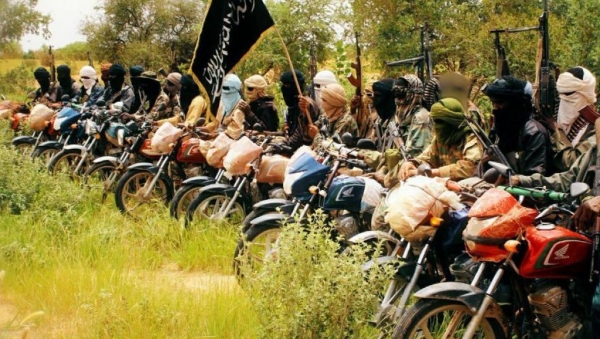Since gaining independence from France in 1960, the State of Mali has experienced considerable political instability, including three military coups and four armed conflicts. The population in Mali is composed by numerous ethnic groups, including the agricultural Bambara and Dogon, and the pastoral Peuhl (or Fulani). These communities have long had disputes over access to water and land, though they were usually resolved without bloodshed.
However, since 2015, the number of deadly intercommunal incidents in the country has risen steadily. Armed Islamist groups have gradually spread from northern to central Mali (Mopti region), where they have summarily executed dozens of people accused of collaborating with government security forces, forced civilians into adhering to their version of Islam, and imposed blockades and bans on marriages, music, sports, alcohol, and certain types of clothing.
These groups have concentrated their recruitment efforts on the Peuhl communities, by exploiting their frustrations over rising banditry, government corruption, and competition over land and water. Some Peuhl villagers told Human Rights Watch that since 2015, banditry and criminality have reduced thanks to these Islamist groups that dispense justice through their version of Sharia (to read more on the topic, see: “The Administration of Justice by Armed Non-State Actors”). However, Human Rights Watch has documented how these groups have “dispensed justice” by committing executions of dozens of people.
The recruitment of Peuhl people has thus resulted in accentuated tensions within the villages, especially with the Bambara and Dogon communities. Together with the limited presence of Malian security forces and easy access to firearms, this has led to the formation and militarisation of ethnically aligned self-defence groups.
Bambara and Dogon members say they have taken security into their own hands because the government had failed to adequately protect their villages and property. Peuhl leaders, on the other hand, assert that the Bambara and Dogon groups have used the fight against armed Islamists as a pretext to enrich themselves and engage in banditry. They also allege that the Malian government is providing arms, ammunition, and financial and logistical support to the Dogon and Bambara militias.
Despite these arguments and regardless of its origin, the situation of violence in central Mali has now reached the threshold of non-international armed conflict, with the Malian authorities failing to adequately intervene to protect local communities, conduct criminal investigations, and disarm abusive self-defence groups.
Human Rights Watch has extensively documented the serious violations of international humanitarian law and human rights law committed by all sides of the conflict. This Report, in particular was based on three research trips in February, May, and July 2018 and telephone interviews throughout 2018. It documents massacres, attacks on villages, and retaliatory killings of Peuhl, Bambara or Dogon civilians committed in Central Mali between January and November 2018. Furthermore, the Report contains numerous recommendations to the Malian government, the Malian judiciary, the Malian security forces, the Malian Parliament, Mali’s international partners, the United Nations, and the Prosecutor of the International Criminal Court (ICC).
In this regard, it is important to note that Mali is a State Party to the ICC. The latter opened an investigation in January 2013 into alleged war crimes and other crimes committed since January 2012. As of March 2018, the investigation has yielded two cases: Al Hassan Ag Abdoul Aziz Ag Mohamed Ag Mahmoud, who is charged with war crimes and whose confirmation of charges hearing is scheduled to take place in the first half of 2019; and Ahmad Al Faqi Al Mahdi, who was found guilty and sentenced to nine years imprisonment in 2016.
To read more, please visit:
https://www.hrw.org/report/2018/12/07/we-used-be-brothers/self-defense-group-abuses-central-mali







